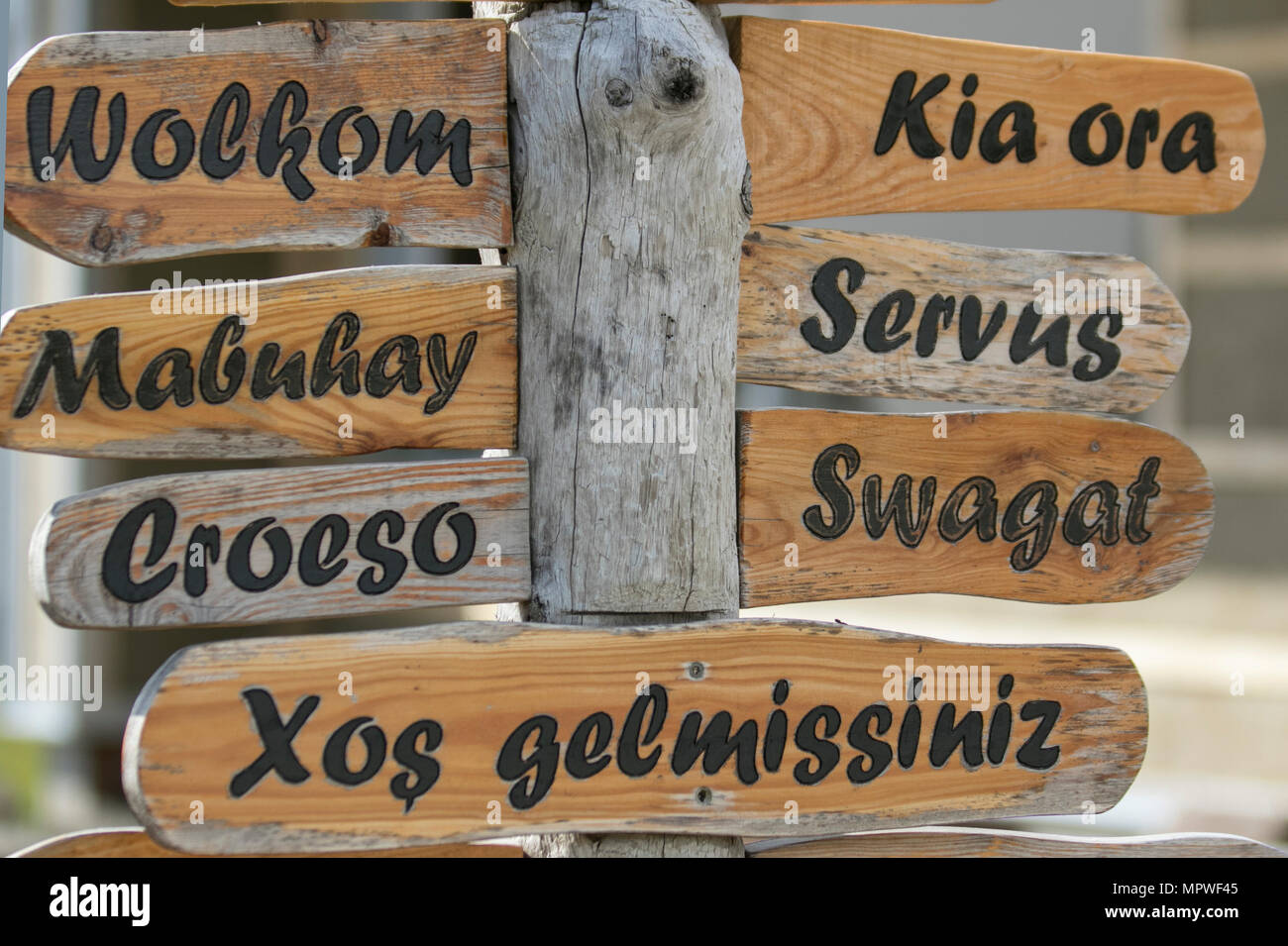When you think of Iceland, stunning landscapes and volcanic wonders might come to mind, but the linguistic heritage of this Nordic nation deserves equal attention. Iceland languages play a vital role in shaping the cultural identity of its people. In this article, we will explore the fascinating world of Icelandic languages and how they contribute to the country's unique character.
Beyond its breathtaking natural beauty, Iceland is a treasure trove of linguistic diversity. While Icelandic is the official language, the country boasts a rich tapestry of dialects and historical influences that continue to shape modern communication. Understanding Iceland languages provides a deeper appreciation for the nation's cultural roots.
This article will delve into the history, usage, and importance of Iceland languages. We will explore the official language, regional dialects, and how the globalized world has impacted linguistic traditions in this remote Nordic nation. Whether you're planning a visit or simply curious about this fascinating topic, you're in for an enlightening journey.
Read also:Pining For Kim Full Video A Comprehensive Exploration
Table of Contents
- The Official Language of Iceland
- History of Icelandic Language
- Regional Dialects in Iceland
- Foreign Languages in Iceland
- Language Education in Iceland
- Impact of Globalization on Iceland Languages
- Efforts to Preserve Icelandic Language
- Interesting Facts About Iceland Languages
- Cultural Significance of Icelandic Language
- Future Trends in Iceland Languages
The Official Language of Iceland
Icelandic is the official language of Iceland and serves as the primary means of communication for the majority of its citizens. Spoken by approximately 350,000 people worldwide, Icelandic remains one of the most unique Germanic languages. Its structure and vocabulary have remained relatively unchanged over centuries, making it a linguistic time capsule.
Origins of Icelandic
The origins of Icelandic can be traced back to Old Norse, the language spoken by the Viking settlers who arrived in Iceland during the 9th century. Over time, Icelandic evolved into its modern form while retaining many archaic features. This linguistic preservation is one of the reasons why Icelandic speakers can still read ancient texts like the sagas with relative ease.
Modern Usage
Today, Icelandic is used in all aspects of daily life in Iceland, from government and education to media and entertainment. The language is protected by law, ensuring its continued use and development. Despite globalization, Icelandic remains a cornerstone of national identity.
History of Icelandic Language
The history of Iceland languages is deeply intertwined with the country's settlement and development. From the early Viking settlers to modern times, Icelandic has undergone significant changes while maintaining its core identity.
Key Historical Periods
- Viking Age (874–1000): Old Norse was introduced to Iceland by settlers from Norway and the British Isles.
- Middle Ages (1000–1500): The Icelandic sagas were written during this period, preserving the language in its medieval form.
- Reformation Period (1500–1800): Icelandic underwent standardization efforts, leading to the development of modern Icelandic.
- Modern Era (1800–Present): Icelandic has been actively preserved and promoted as a symbol of national pride.
Regional Dialects in Iceland
While Icelandic is relatively uniform across the country, regional dialects do exist, reflecting the unique characteristics of different areas. These dialects are primarily distinguished by pronunciation and minor vocabulary differences.
Notable Dialects
- Reykjavík Dialect: Spoken in the capital city, this dialect is considered standard Icelandic.
- Westfjords Dialect: Characterized by distinct vowel sounds and intonation patterns.
- South Coast Dialect: Known for its unique vocabulary and pronunciation quirks.
Foreign Languages in Iceland
In addition to Icelandic, several foreign languages are spoken and studied in Iceland. English is widely understood and used in tourism, business, and education. Other languages, such as Danish and German, also hold historical significance.
Read also:Kate Hudson Political Views A Comprehensive Exploration
Importance of English
English plays a crucial role in Iceland's international relations and tourism industry. Most Icelanders learn English from a young age, making communication with visitors seamless. This proficiency in English has helped Iceland become a popular destination for travelers from around the world.
Language Education in Iceland
The education system in Iceland places a strong emphasis on language learning. Students are required to study Icelandic, English, and often a third language, such as Danish or German. This comprehensive approach ensures that Icelanders are well-prepared for a globalized world.
Curriculum Highlights
- Mandatory Icelandic language courses throughout primary and secondary education.
- English introduced as a second language starting in elementary school.
- Optional courses in Danish, German, and other languages offered in high school.
Impact of Globalization on Iceland Languages
Globalization has brought both challenges and opportunities for Iceland languages. While English dominates many aspects of modern life, efforts to preserve Icelandic have gained momentum. The Icelandic Language Committee actively works to create new words and adapt the language to contemporary needs.
Preservation Strategies
- Development of new vocabulary to replace loanwords.
- Encouragement of Icelandic usage in technology and media.
- Support for linguistic research and education programs.
Efforts to Preserve Icelandic Language
Preserving Icelandic is a national priority in Iceland. Various initiatives have been implemented to ensure the language's survival in a rapidly changing world. These efforts include government policies, community programs, and technological innovations.
Key Initiatives
- Establishment of the Árni Magnússon Institute for Icelandic Studies.
- Development of digital tools and resources for language learners.
- Support for Icelandic literature and media production.
Interesting Facts About Iceland Languages
Icelandic is full of fascinating quirks and unique features that make it stand out among other languages. Here are some interesting facts to consider:
- Icelandic has retained many archaic words and grammatical structures found in Old Norse.
- The language uses a complex system of inflections for nouns, verbs, and adjectives.
- There are no loanwords for modern technology; instead, Icelandic creates new words based on traditional roots.
Cultural Significance of Icelandic Language
Icelandic is more than just a means of communication; it is a vital part of Iceland's cultural identity. The language reflects the country's history, values, and traditions, making it an essential element of national pride.
Cultural Influence
From ancient sagas to modern literature, Icelandic language has played a central role in shaping the cultural landscape of Iceland. It serves as a bridge between past and present, connecting Icelanders to their rich heritage.
Future Trends in Iceland Languages
As Iceland continues to embrace globalization, the future of its languages will be shaped by a delicate balance between tradition and innovation. Efforts to preserve Icelandic while embracing new technologies and ideas will determine the language's trajectory in the years to come.
Predictions
- Increased use of Icelandic in digital platforms and social media.
- Continued emphasis on language education in schools.
- Development of new vocabulary to address emerging trends and technologies.
Kesimpulan
Iceland languages, particularly Icelandic, hold a special place in the hearts of its people. From its ancient roots to its modern applications, the language continues to evolve while maintaining its unique identity. Understanding the history, dialects, and cultural significance of Iceland languages provides valuable insights into the nation's rich heritage.
We encourage readers to explore further by learning Icelandic or engaging with its vibrant literary traditions. Share your thoughts in the comments below or explore other articles on our website to deepen your knowledge of this fascinating topic. Together, let's celebrate the linguistic treasures of Iceland!
References:
- Þorláksson, Guðrún. "The Icelandic Language: History and Development." Journal of Linguistics, 2019.
- Árni Magnússon Institute for Icelandic Studies. "Preservation of Icelandic Language." Official Website, 2023.
- Statistics Iceland. "Language Usage in Modern Iceland." Annual Report, 2022.

